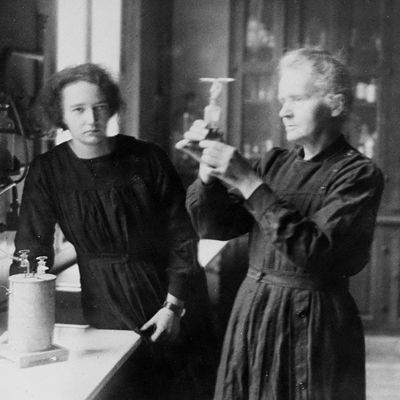
Asked by reporters yesterday if he accepts the scientific consensus that greenhouse gas emissions contribute to global warming, John Boehner demurred on the curious but increasingly familiar grounds that he is not a scientist. “Listen, I’m not qualified to debate the science over climate change,” the House Speaker said. Boehner immediately turned the question to the killing of jobs that would result from any proposal to reduce greenhouse gas emissions, which he asserts with unwavering certainty. (On this question, Boehner is not held back by the fact that he is also not an economist.)
This particular demurral seems to be in vogue for the Grand Old Party. Florida governor Rick Scott (“I’m not a scientist”) and Senator Marco Rubio (“I’m not a scientist. I’m not qualified to make that decision.”) have both held up their lack of scientific training as a reason to withhold judgment on anthropogenic global warming.
It’s a strange form of reasoning. Very few of us are scientists, which is exactly why we tend to defer to scientific judgment. It might make sense to question expert consensus in a field where you are an expert, but if you know very little about it, you probably want to just go along with what the experts think. Scientists do, in fact, have a nearly unanimous view of anthropogenic global warming. Scientists likewise believe that chugging Liquid Drano is bad for your health, which is why, precisely because of my lack of scientific training, I hold off on the Drano Cocktails.
“I am not a scientist” makes sense as a way to resolve a tension within Republican politics. It may be a political liability for Republicans to openly associate themselves with the kook conspiracy theories popular among conservative ideologues. One solution might be for Republicans to concede that anthropogenic global warming is indeed real, but that any solution is simply too costly. That might allow Republicans to minimize their kook exposure while still hewing to the bottom line party doctrine that individuals and firms ought to be able to dump carbon into the atmosphere for free.
The trouble with the it’s-real-but-let’s do-nothing line is that might give offense to the kooks themselves. After all, the Glenn Becks, George Wills, and Wall Street Journal editorial page columnists of the world are out there fighting the good denier fight, and they don’t want to be undercut by their fellow Republicans. More to the point, conceding the legitimacy of climate science might signal a certain flexibility toward outcomes. A Republican who admits anthropogenic global warming is real but objects to particular solutions might be open to some other solutions down the road.
The tension within the Republican coalition on this point simmers frequently just below the surface. In a recent hearing before Congress, the U.S. Chamber of Commerce refused to take a position on whether anthropogenic global warming is real. “Room to Grow,” the new policy manifesto by a coalition of non-crazy Republicans, has one chapter on energy, which omits any reference at all to climate change. It doesn’t deny climate change, nor does it concede it — it merely treats the energy debate as if the question of whether to price carbon emissions does not exist at all.
“I’m not a scientist” allows Republicans to avoid conceding the legitimacy of climate science while also avoiding the political downside of openly branding themselves as haters of science. The beauty of the line is that it implicitly concedes that scientists possess real expertise, while simultaneously allowing you to ignore that expertise altogether.






























